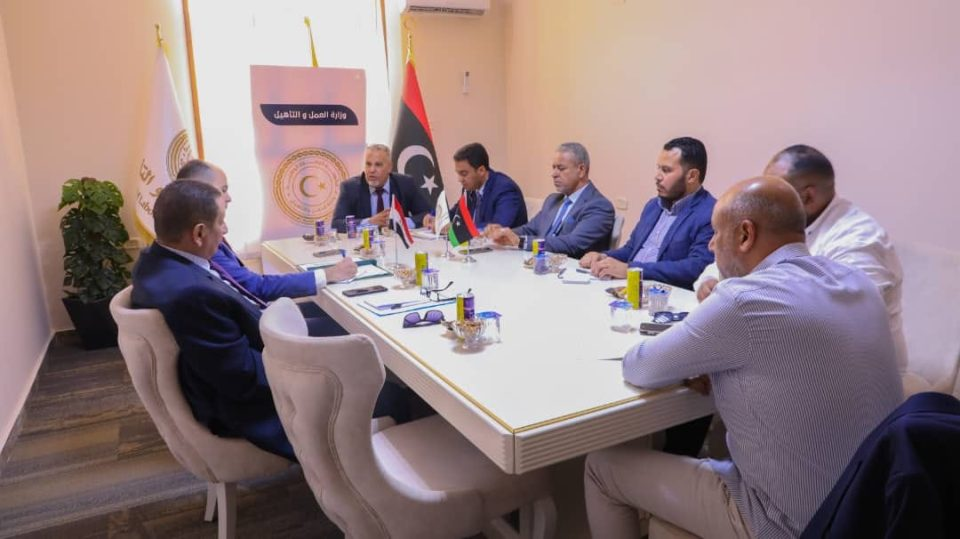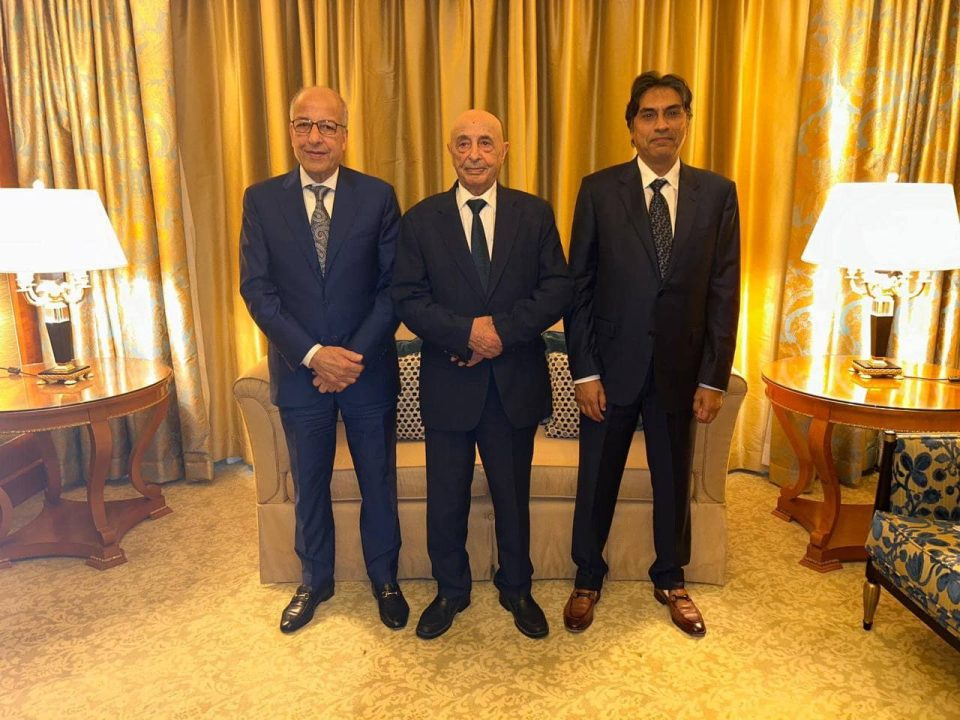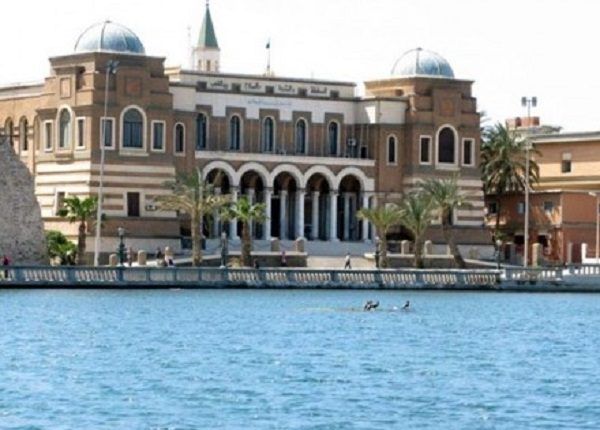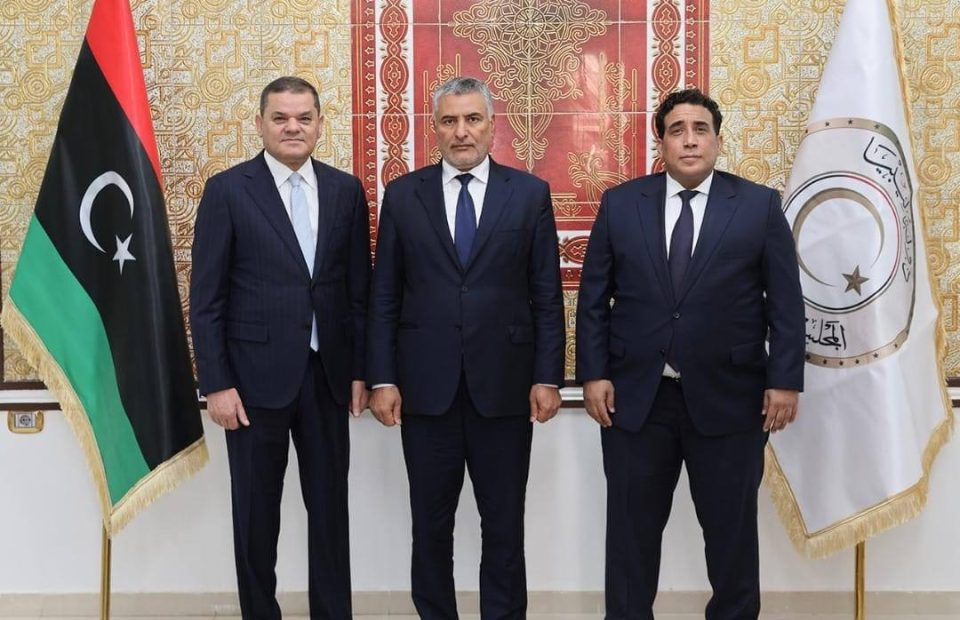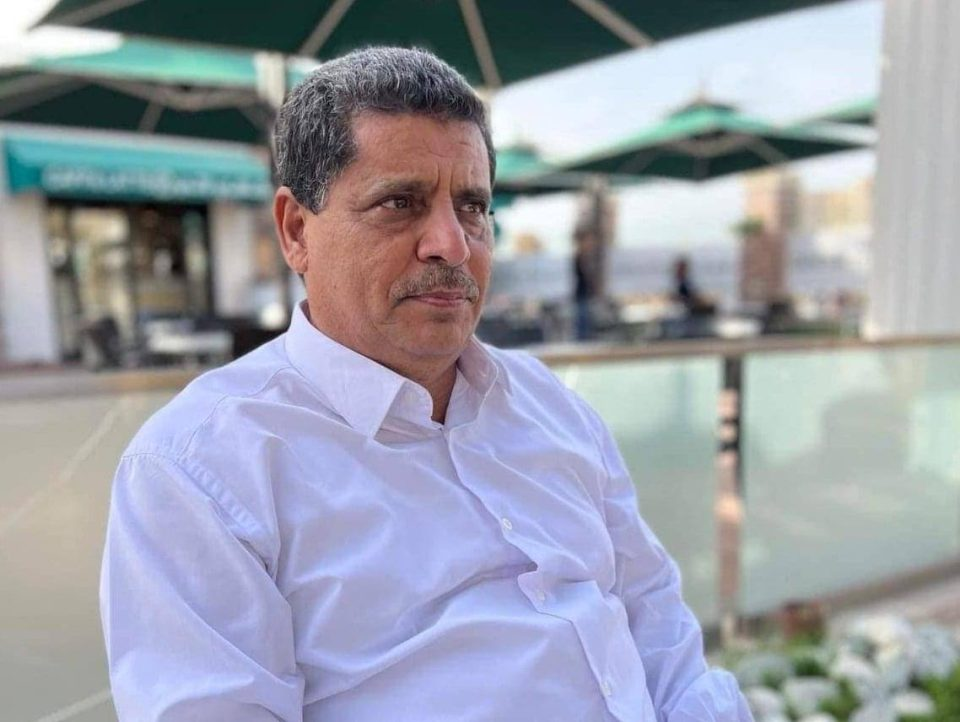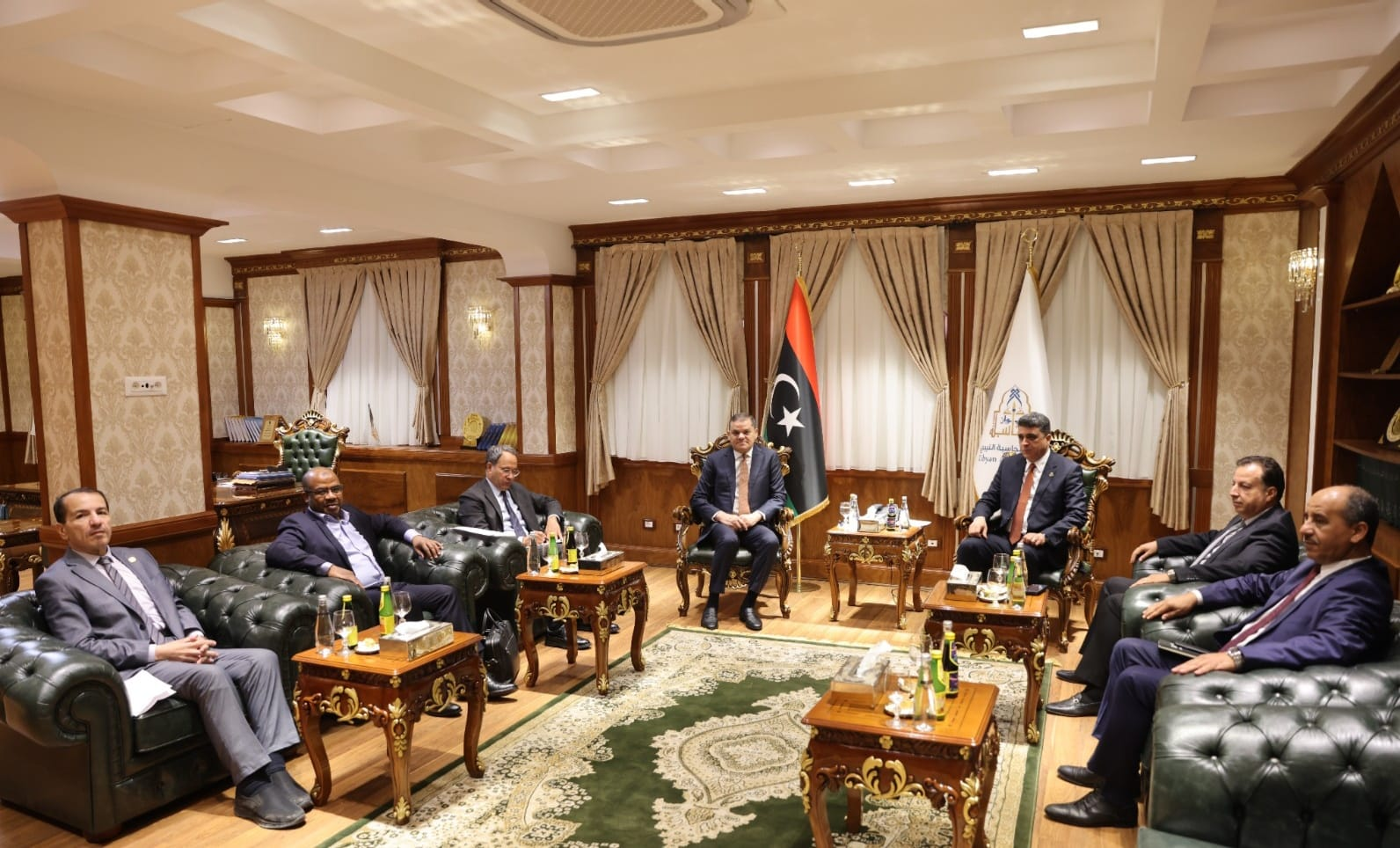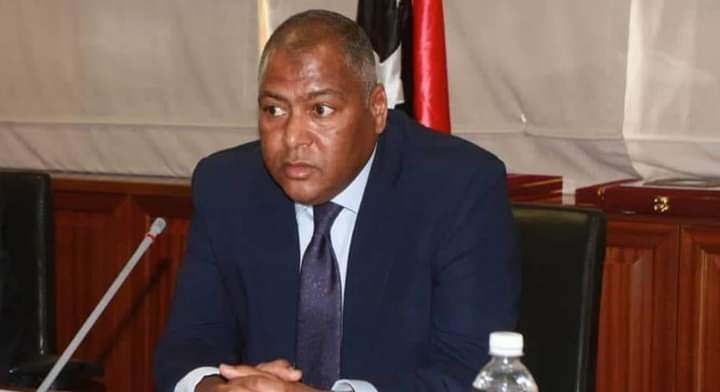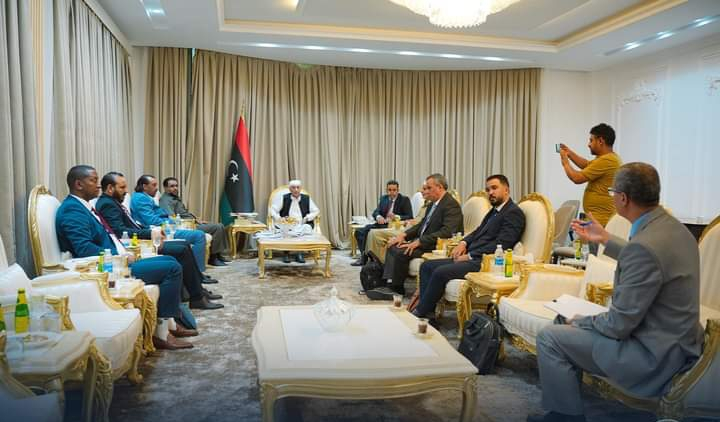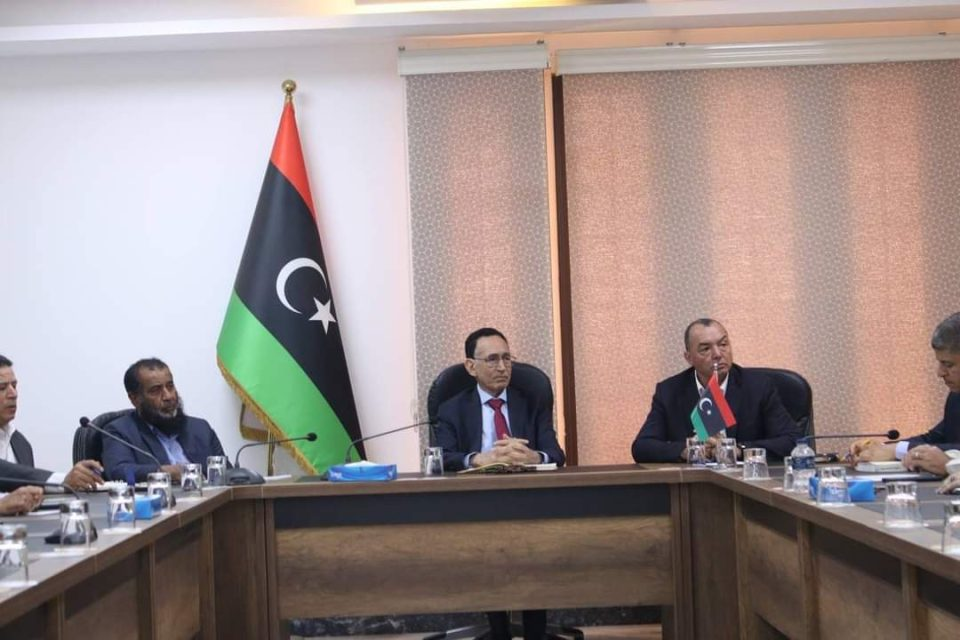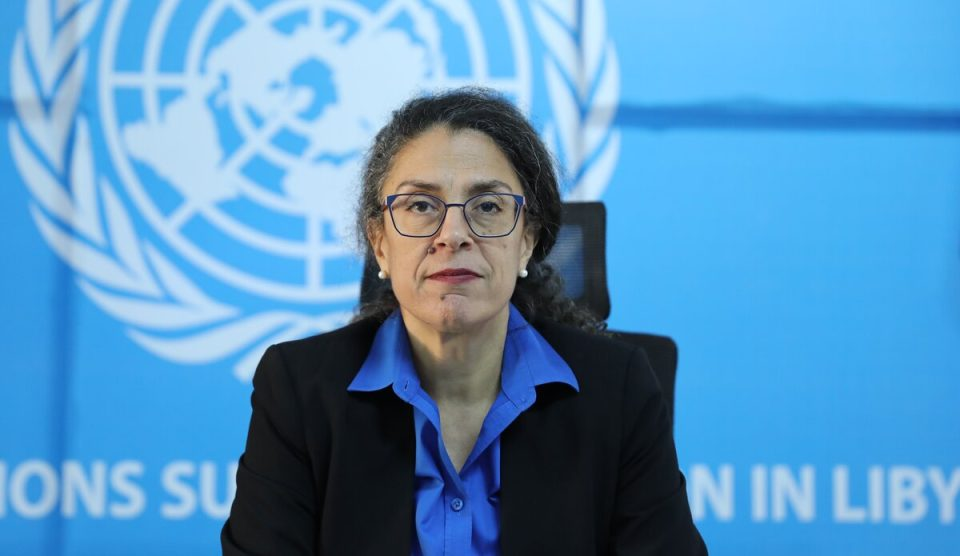Economic expert Nour Al-Din Al-Hbarat commented in an exclusive statement to our source today, Saturday, on the ongoing dispute between the Prime Minister of the Government of National Unity, Abdul Hamid Dbeibeh, and the Governor of the Central Bank of Libya, Seddiq Al-Kabeer, regarding scholarships for students studying abroad and how to resolve it. He stated that the dispute over the scholarships, which have been ready since the end of last April but delayed due to the refusal by the latter because the scholarship amount was not subjected to the tax imposed by the Speaker of the House of Representatives’ Decision No. (15) of 2024, which imposes a 27% tax on foreign currency sales for all purposes, has intensified recently.
Al-Hbarat mentioned that the Government of National Unity insisted on not subjecting the scholarship amount to the mentioned tax, citing court rulings from several courts nullifying the tax. The government also believes that this would exacerbate the financial burdens on the already strained state treasury. He added that both parties still hold their positions, and “students are the victims of this dispute or disagreement.”
He clarified that the effects and repercussions of the dispute are not limited to the issue of student scholarships, as it is a minor amount that can be easily overlooked. Instead, it will extend far beyond that, impacting the fuel subsidy bill and government imports conducted through letters of credit, which pertain to sectors such as oil, electricity, foreign affairs, health, security, defense, industry, transportation, and other projects like the river, water, and sewage systems. Hence, the problem is not as trivial as some might think.
He continued by questioning how the government has been handling the cost of the fuel subsidy, which is exchanged with oil sales, since the imposition of the tax. The value of these sales is not deposited into government accounts at the central bank. How has it managed the cost of the aforementioned government imports? How has it handled the medical treatment costs abroad and the funds allocated to the National Oil Corporation and the share or profits of the foreign partner? Are all these costs subjected to the mentioned 27% tax?
The economic expert added that answering these questions is crucial. If the answer is yes, then the government’s justifications seem insignificant because the cost of the fuel subsidy imported from abroad is very high. For instance, if this bill amounted to $8.900 billion in 2022, equivalent to 42.900 billion (at an exchange rate of 4.82), according to the report of the Audit Bureau, then the value of this bill after the tax, at an exchange rate of 6.15, would be approximately 54.700 billion dinars, an increase of 11.800 billion dinars, or 27%, which is a significant increase and constitutes an additional burden on the state treasury.
The economic expert indicated that if the value of government letters of credit amounted to $5.374 billion in 2023, equivalent to 25.900 billion dinars (at an exchange rate of 4.82), after excluding the value of the “previous obligations” item which remains ambiguous, then the value of these letters of credit, at an exchange rate of 4.82 plus the tax, is estimated at 33.000 billion dinars, an increase of 7.100 billion dinars, or approximately 27%. Meanwhile, the value of scholarships for students studying abroad in 2023, according to the central bank’s statement, was $102 million, equivalent to 492 million dinars (at an exchange rate of 4.82). After the tax, the value of these scholarships would be 627 million dinars, an increase of 135 million dinars, or 27%.
He confirmed in his comment to Tebadel that there is no comparison between the increase in the value of the imported fuel subsidy bill and the value of government imports due to the tax, totaling 19 billion dinars, compared to the increase in the value of student scholarships, which is only 135 million dinars for the same reason. However, if the answer is no, meaning the government has not dealt with the tax since its enactment in February, this is a very likely scenario.
Al-Hbarat continued by stating that the fuel subsidy bill is no longer deducted from government accounts at the central bank and is not recorded in its books due to the barter mechanism, which violates the applicable financial laws and regulations and the principles of the general budget. It also appears that government imports have been halted due to the delay in approving the budget, limiting public expenditure to salaries and subsidies (excluding fuel subsidies). The salaries of employees and scholarships for students studying abroad for the first half of this year also seem to have not been paid yet.
He added that if this is the case, then the government’s justifications seem logical because this would lead to an increase in public expenditure by rates of up to 27% or more, worsening the already deteriorating economic situation and adding financial burdens on citizens due to rising inflation rates and further erosion of the purchasing power of the dinar, salaries, incomes, and savings of citizens.
Al-Hbarat pointed out that while the government’s adherence to court rulings nullifying the tax is not feasible under the current circumstances since the problem is primarily economic, not legal, and the government is well aware of this. Nullifying the tax would leave the central bank with no option but to reimpose restrictions on foreign currency usage, including halting the personal purposes system and reducing letters of credit to the minimum, limited to essential goods and materials such as food, medicine, fuel, and raw materials. This would aim to reduce pressures on the balance of payments and foreign exchange reserves, leading to an increase in the dollar’s price in the parallel market, which would, in turn, lead to higher inflation rates and greater pressures on liquidity, exacerbating citizens’ suffering.
Therefore, based on the above, and since the central bank’s proposal to impose the tax presented to the Speaker of the House of Representatives in February excluded all sovereign and service sectors funded by the budget from the tax burden, limiting its application to the private sector and government entities not funded by the general budget, such as public companies, and the central bank is aware of the importance of this exception for the reasons mentioned. The Speaker of the House of Representatives’ Decision No. 15 of 2024 exceeded the central bank’s proposal by imposing the tax on all purposes, including those related to government entities funded by the general budget, without considering the adverse effects and repercussions on the state treasury and its economic conditions.
Economic expert Nour Al-Din Al-Hbarat concluded by saying: “The solution, in my opinion, is for the government to address the central bank with a detailed, analytical, and numerical memorandum explaining the effects and repercussions of imposing the tax on all purposes on the state’s public finances (expenditures and revenues), its balance of payments, and the economy in general. The central bank should then refer the government’s proposal to the Speaker of the House of Representatives to make the necessary amendment or exception in this regard, putting an end to this ongoing dispute or disagreement.”


